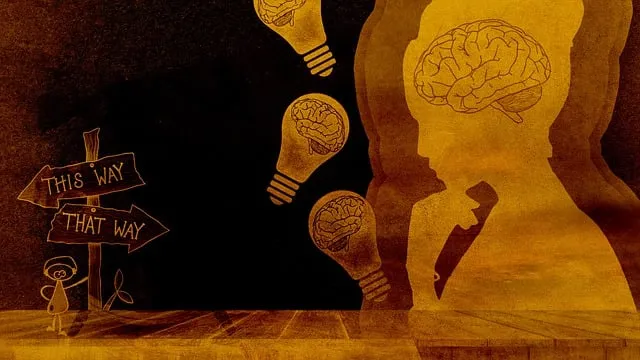The Littleton Kaiser Permanente behavioral health center offers swift and culturally sensitive crisis intervention for mental health distress. They teach emotional well-being promotion, self-care routines, and advocate for system improvements. The center creates supportive environments through non-judgmental spaces, active listening, and tailored coping skills. Post-crisis care focuses on long-term wellness through journaling, stress management, and empathy building. This holistic approach ensures comprehensive support for patients' mental health journeys.
At the Littleton Kaiser Permanente Behavioral Health Center, crisis intervention plays a pivotal role in supporting individuals during moments of severe emotional distress. This article delves into the comprehensive strategies employed by the center, offering insights into effective crisis management. We explore identifying behavioral crisis triggers, key intervention techniques, and the significance of supportive environments. Additionally, it highlights post-crisis care, emphasizing a holistic approach to recovery. By examining these practices at Littleton Kaiser Permanente Behavioral Health Center, readers gain valuable guidance on navigating crises.
- Understanding Crisis Intervention at Littleton Kaiser Permanente Behavioral Health Center
- Identifying Signs and Triggers for Behavioral Crises
- Key Strategies for Effective Crisis Intervention
- Role of Supportive Environment and Communication in Crisis Management
- Post-Crisis Care and Recovery: A Comprehensive Approach at the Center
Understanding Crisis Intervention at Littleton Kaiser Permanente Behavioral Health Center

At Littleton Kaiser Permanente Behavioral Health Center, crisis intervention is a cornerstone of their comprehensive healthcare services. The center understands that mental health crises can be overwhelming and often unexpected, requiring swift, skilled support to help individuals navigate through distressing situations. Their trained professionals are equipped with evidence-based strategies tailored to address acute psychological distress, suicide ideation, and other critical behavioral health issues.
Littleton Kaiser Permanente Behavioral Health Center places a strong emphasis on cultural competency training for its healthcare providers, ensuring that interventions are sensitive and effective across diverse populations. This approach not only enhances the quality of care but also promotes equity in access to mental health services. Additionally, the center prioritizes burnout prevention strategies for its staff, recognizing that well-being caregivers can better support their patients. Efforts include regular workshops on depression prevention and resilience-building techniques, aiming to foster a supportive environment where both patients and providers can thrive.
Identifying Signs and Triggers for Behavioral Crises

Recognizing behavioral crisis signs and triggers is a crucial step in crisis intervention, especially at a center like the Littleton Kaiser Permanente behavioral health center. Individuals experiencing distress may exhibit various cues, ranging from subtle changes in mood and behavior to more overt indications of turmoil. These signs can include sudden irritability, withdrawal from social interactions, altered sleep patterns, or dramatic shifts in appetite. Some triggers for behavioral crises are external, such as stressful life events, trauma reminders, or environmental factors. However, internal factors like unprocessed emotions, past experiences, or underlying mental health conditions (e.g., depression) also play a significant role.
At the Littleton Kaiser Permanente behavioral health center, professionals emphasize the importance of self-awareness exercises to help individuals recognize their emotional triggers and develop coping mechanisms. Promoting mental wellness through education and practice enables people to anticipate and manage potential crises effectively. This proactive approach, coupled with depression prevention strategies, ensures that individuals receive timely support and guidance before behaviors escalate.
Key Strategies for Effective Crisis Intervention

In moments of crisis, effective intervention strategies can make a significant difference in an individual’s life. The Littleton Kaiser Permanente behavioral health center emphasizes several key approaches to ensure successful outcomes. One primary strategy is Emotional Well-being Promotion Techniques, which involve teaching individuals coping mechanisms and emotional regulation skills to manage stress and anxiety effectively. This includes techniques like mindfulness, deep breathing exercises, and cognitive reframing, empowering people to navigate challenging situations with resilience.
Additionally, the center recognizes the importance of Self-Care Routine Development for Better Mental Health. Encouraging clients to establish daily routines focused on self-care promotes stability and long-term mental wellness. This involves activities such as regular exercise, adequate sleep, balanced nutrition, and engaging in hobbies or social interactions. By integrating these practices into their lives, individuals can build resilience, enhance coping abilities, and better manage future crises. Such holistic approaches, informed by a Mental Health Policy Analysis and Advocacy framework, ensure that crisis intervention strategies are not just immediate solutions but contribute to broader improvements in mental health support systems.
Role of Supportive Environment and Communication in Crisis Management

Creating a supportive environment is paramount during crisis intervention. The Littleton Kaiser Permanente behavioral health center emphasizes this as a foundational aspect of effective crisis management. A safe, non-judgmental space encourages individuals to express their feelings and thoughts openly, fostering trust and promoting honest communication. This environment ensures that the person in crisis feels understood and valued, allowing them to begin processing their emotions and finding solutions.
Communication plays a pivotal role in de-escalating situations and facilitating resolution. Trained professionals at facilities like Littleton Kaiser Permanente utilize active listening techniques, validating the individual’s experiences and emotions. They also employ conflict resolution techniques to help individuals manage intense feelings, such as anger or anxiety relief, providing them with coping skills development tools tailored to their unique needs.
Post-Crisis Care and Recovery: A Comprehensive Approach at the Center

Post-crisis care and recovery are integral components of a comprehensive approach to addressing mental health challenges, as exemplified by the services provided at the Littleton Kaiser Permanente behavioral health center. Beyond immediate intervention, this holistic strategy focuses on fostering resilience and promoting long-term well-being. The journey towards recovery often involves tailored support systems designed to meet individual needs. One effective tool in this process is mental wellness journaling, which allows individuals to express their thoughts and emotions in a safe, private space. This practice enables self-reflection, helps identify triggers, and promotes positive coping mechanisms.
Additionally, the center emphasizes the importance of stress management techniques and empathy building strategies. These skills are crucial for not only navigating the aftermath of a crisis but also for enhancing overall mental wellness. By providing guidance on stress reduction methods, individuals gain tools to mitigate future challenges, thereby fostering a sense of stability and empowerment. Empathy-focused interventions further strengthen support networks, encouraging open communication and understanding among those affected by crises, ultimately contributing to faster healing and more effective recovery.
The Littleton Kaiser Permanente Behavioral Health Center exemplifies a comprehensive approach to crisis intervention, combining robust strategies, supportive environments, and effective communication. By understanding the signs and triggers of behavioral crises, the center equips its professionals with the tools needed to provide timely and compassionate care. Post-crisis recovery is just as crucial, ensuring patients receive holistic support for their journey back to well-being. This guidance serves as a valuable resource, offering insights into effective crisis management, particularly within the context of Littleton Kaiser Permanente behavioral health center’s successful model.


